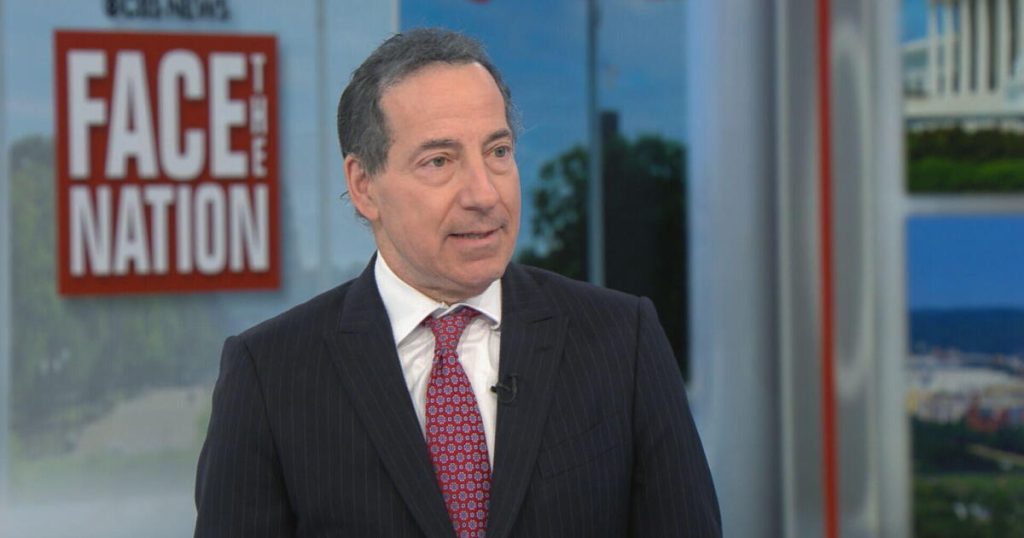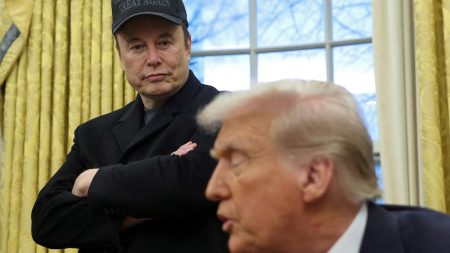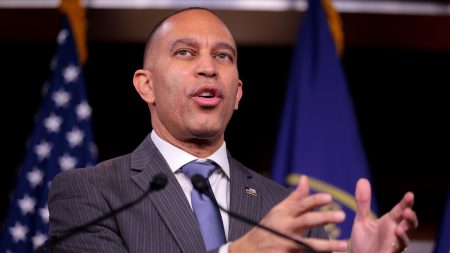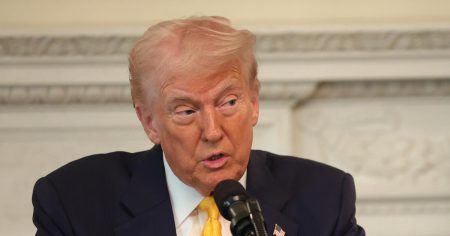A Crisis of Integrity: The Erosion of Justice and Accountability Under the Trump Administration
The recent turmoil within the Department of Justice (DOJ) has exposed a deeply troubling pattern of corruption and political interference under the Trump administration. In a stunning turn of events, seven federal prosecutors resigned in protest after the DOJ ordered them to drop an investigation into New York City Mayor Eric Adams, who faces serious charges including bribery and conspiracy. The resignation letters from these prosecutors, including Danielle Sassoon, the acting U.S. Attorney overseeing the case, reveal a disturbing quid pro quo arrangement. According to Sassoon, the DOJ proposed dismissing the charges against Adams in exchange for his cooperation in enforcing federal immigration laws. This blatant abuse of power has sparked widespread outrage, with Rep. Jamie Raskin (D-MD), the ranking member of the House Judiciary Committee, describing the situation as "saturated with corruption." Raskin vocalist that the DOJ’s actions amount to a violation of due process and a dangerous assault on the rule of law.
Prosecutor Resignations: A Stand Against Corruption
The resignations of seven prosecutors, including high-ranking officials like the head of the Public Integrity section and the Criminal Division, underscore the severity of the ethical and legal violations at play. These resignations are not merely symbolic gestures; they represent a profound rejection of the DOJ’s decision to drop the case against Mayor Adams. Raskin emphasize that these prosecutors are not partisan actors but rather career professionals who have dedicated their lives to upholding justice. Their willingness to step down rather than comply with what they see as an unlawful directive speaks volumes about the integrity of the legal system and the growing concern among prosecutors about political interference in their work. As Raskin noted, "Nothing has changed in the facts of the case, and nothing has changed in the law. Additional evidence was found, meaning they were going to revise and expand the original indictment, but instead, they were told to kill it for political reasons."
Judicial Oversight: The Role of Judge Dale Ho
While the DOJ may have initiated this political maneuver, the case is far from over. Judge Dale Ho, who presides over the case, has the authority to reject the DOJ’s request to dismiss the charges. Raskin highlighted that Judge Ho may choose to appoint another prosecutor to move forward with the indictment, which was originally handed down by a grand jury. This potential outcome underscores the importance of judicial independence and the constitutional checks and balances that are designed to prevent abuses of power. The judge’s decision will be a critical test of whether the judiciary can remain a bulwark against political manipulation of the justice system. As Raskin noted, "Judge Ho does not have to accept the withdrawal of the charges. He may go ahead and try to appoint another prosecutor to go ahead and go through with the indictment that was handed down by the grand jury."
Attorney General Bondi’s Defense: A Thin Veil for Corruption
Attorney General Bondi has attempted to defend the DOJ’s actions by claiming that the investigation into Mayor Adams was politically motivated, allegedly initiated by the Biden administration to punish Adams for criticizing Biden’s immigration policies. However, Raskin dismissed this argument, pointing out that Bondi’s justification is fundamentally flawed. The Attorney General cited no changes in the facts of the case, no changes in the law, and no irregularities in the investigation or prosecution. Instead, Raskin argued that Bondi’s defense mimics the tactics of her boss, Donald Trump, who has a habit of lying and distorting reality to serve his political agenda. Raskin made it clear that corruption should not be tolerated, regardless of political affiliation, stating, "I’m against corruption across the board. It seems like Donald Trump wants to attract all of the corrupt politicians in America to his side."
The Broader Context: Trump’s Assault on the Rule of Law
The controversy surrounding Mayor Adams is just one piece of a larger puzzle. Raskin connected the dots between this case and the broader pattern of lawlessness and corruption under the Trump administration. He pointed to the administration’s systematic dismantling of accountability mechanisms, such as the firing of 17 inspectors general who were tasked with uncovering waste, fraud, and abuse within the government. Raskin noted that these inspectors general had uncovered $91 billion in government misconduct, but their dismissal was carried out without proper notice or justification, violating legal requirements. Furthermore, the administration has signaled its intent to stop enforcing key anti-corruption laws, such as the Foreign Corrupt Practices Act, and has dismantled consumer protections, such as those provided by the Consumer Financial Protection Bureau. These actions, Raskin argued, reveal a stark agenda: to protect the interests of corporations and political allies at the expense of the American people.
The Path Forward: Vigilance and Accountability
Despite the challenges posed by the Trump administration’s assault on the rule of law, Raskin emphasized that there is hope for accountability. He noted that Democrats are winning in court, with over a dozen federal injunctions and temporary restraining orders blocking illegal actions by the administration. From the seizure of private data to the attempted ban on birthright citizenship, the judiciary has played a crucial role in halting the administration’s most egregious overreach. Raskin’s message is clear: the fight for justice and accountability is far from over, but the constitutional framework of the United States provides the tools to resist corruption and uphold the rule of law. As he put it, "We are a country based on law," and it is up to the American people and their elected representatives to ensure that no one is above the law—not even the President.
In conclusion, the resignation of seven prosecutors and the unfolding drama in the Adams case are not isolated incidents but symptoms of a deeper crisis in American governance. The Trump administration’s willingness to weaponize the Department of Justice for political gain poses a profound threat to democracy and the rule of law. As Rep. Jamie Raskin made clear, the stakes could not be higher. The battle to restore integrity to the justice system and hold power to account will require vigilance, determination, and a unwavering commitment to the principles of fairness and equality.















